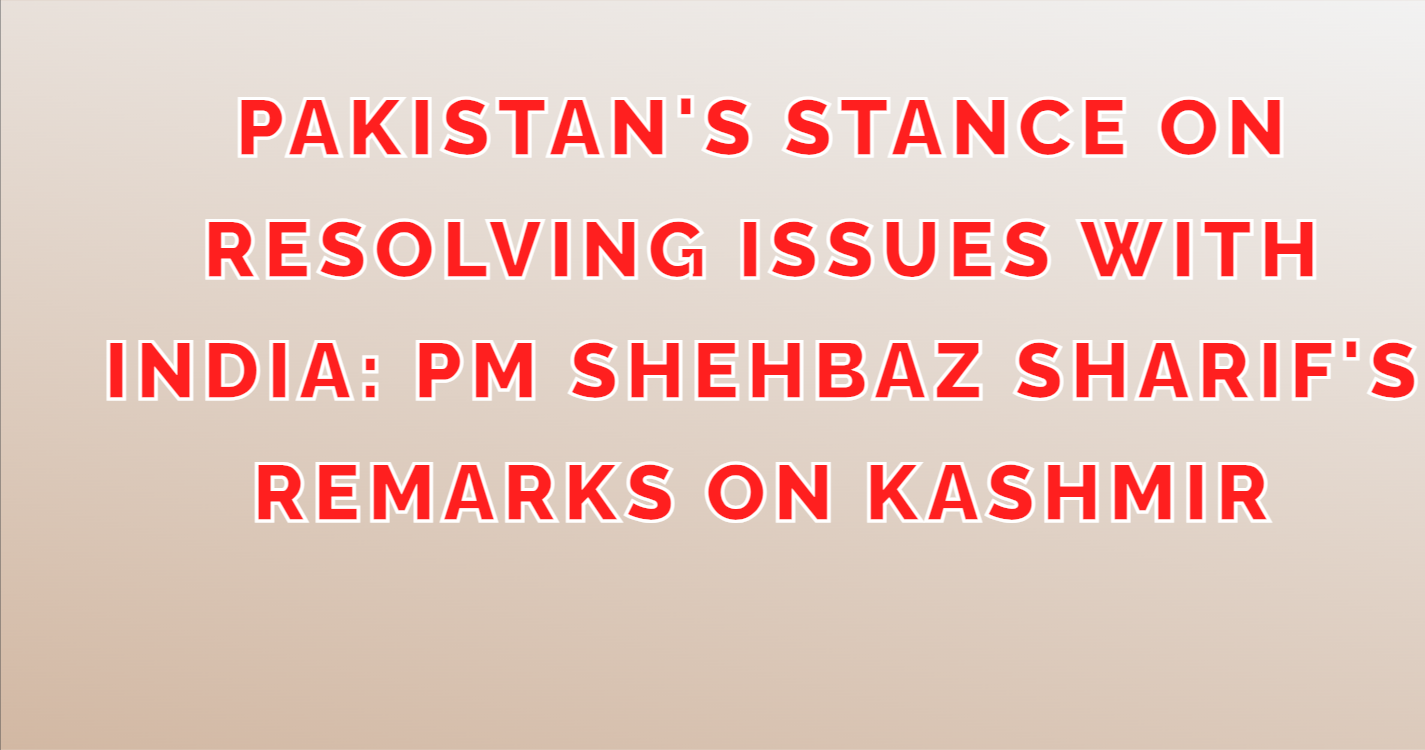On February 5, 2025, Pakistan’s Prime Minister Shehbaz Sharif addressed the legislative assembly of Pakistan-occupied Kashmir (PoK) in Muzaffarabad, reaffirming Pakistan’s commitment to resolving the Kashmir dispute. He emphasized that peace with India could only be achieved through a just resolution of the Kashmir conflict. Sharif urged India to honor its commitments to the United Nations and engage in meaningful dialogue to address this long-standing issue. His speech came at a time of heightened tensions, making his words all the more significant.
Rooted in History
The Kashmir conflict dates back to 1947, when British India was divided into two independent states, India and Pakistan. The princely state of Jammu and Kashmir, with a Muslim-majority population but ruled by a Hindu Maharaja, became the center of dispute. The Maharaja’s decision to accede to India led to the first war between India and Pakistan. Since then, Kashmir has remained a source of tension, with multiple wars, border skirmishes, and failed peace efforts marking its history.
Situation in Kashmir
The Kashmir dispute remains one of the most complex and sensitive issues in South Asia. India administers Jammu and Kashmir, while Pakistan controls Azad Kashmir and Gilgit-Baltistan. The two regions are divided by the Line of Control (LoC), which serves as the de facto border. Skirmishes and cross-border tensions are common, affecting the lives of civilians on both sides.
Pakistan’s Stance on the Kashmir Dispute
Pakistan’s approach to Kashmir has remained consistent over the years. The country advocates for a peaceful resolution based on the will of the Kashmiri people. Shehbaz Sharif’s speech reiterated Pakistan’s call for India to engage in dialogue and honor its international commitments. Pakistan has long insisted that the United Nations should play an active role in resolving the dispute, ensuring that Kashmiris are given the right to choose their future.
International Community
The United Nations has been involved in the Kashmir dispute since the 1947-48 war, passing resolutions that call for a peaceful settlement. However, political complexities and shifting international alliances have made implementation difficult. While Pakistan continues to seek international mediation, India has maintained that any resolution must be bilateral, without third-party involvement.
Path to Peace
While both India and Pakistan have expressed willingness to engage in dialogue, achieving a resolution remains difficult. The political climate in both countries, domestic pressures, and strategic interests often prevent any meaningful progress. Mistrust between the two nations has deepened over time, making negotiations even more challenging.
For peace to be achieved, both sides must show flexibility and a genuine commitment to diplomatic engagement. Confidence-building measures, such as trade agreements, cross-border cooperation, and cultural exchanges, could help ease tensions. Most importantly, the voices of the Kashmiri people must be heard, ensuring that any solution reflects their aspirations and rights.

